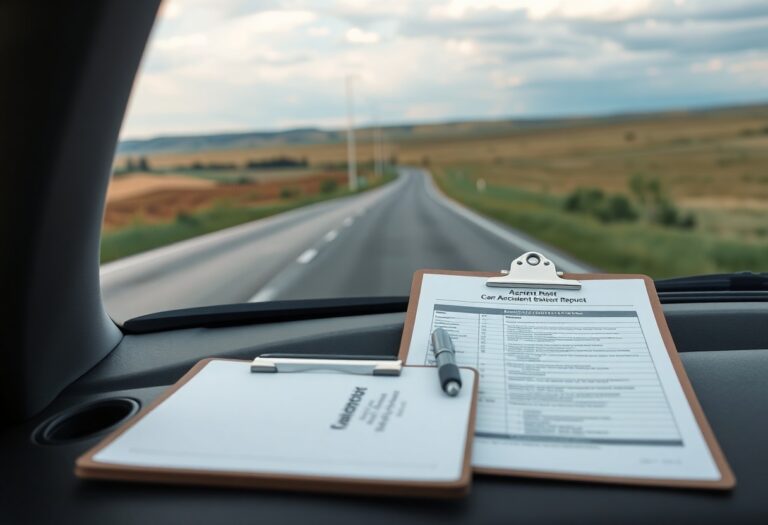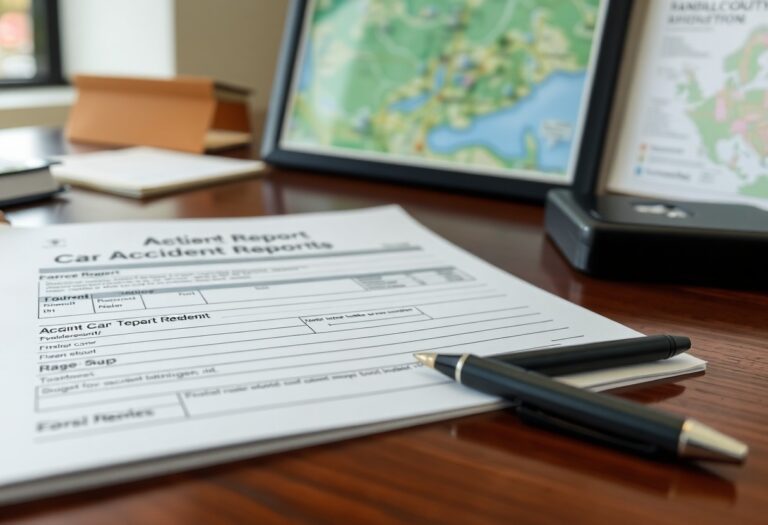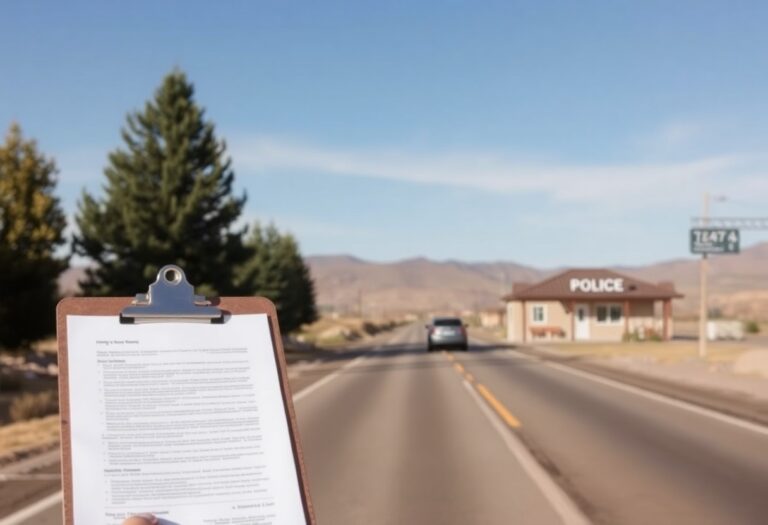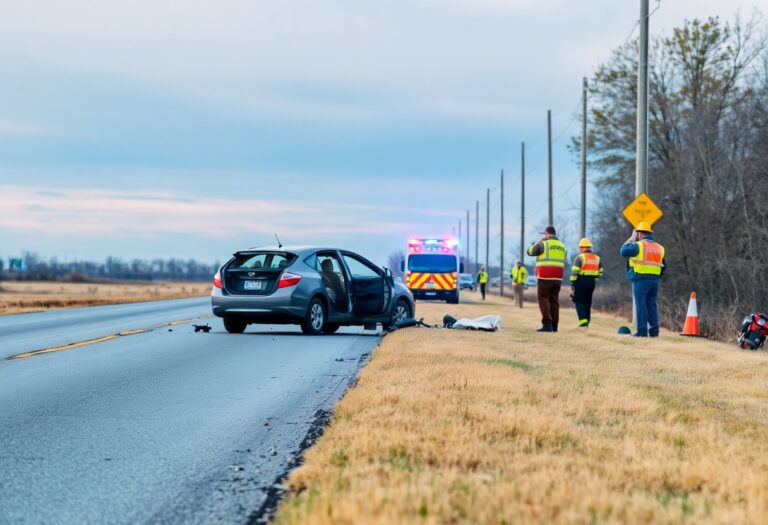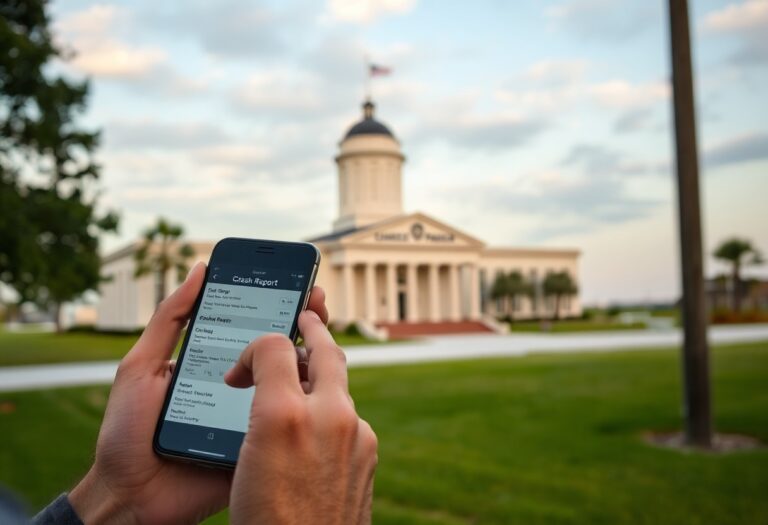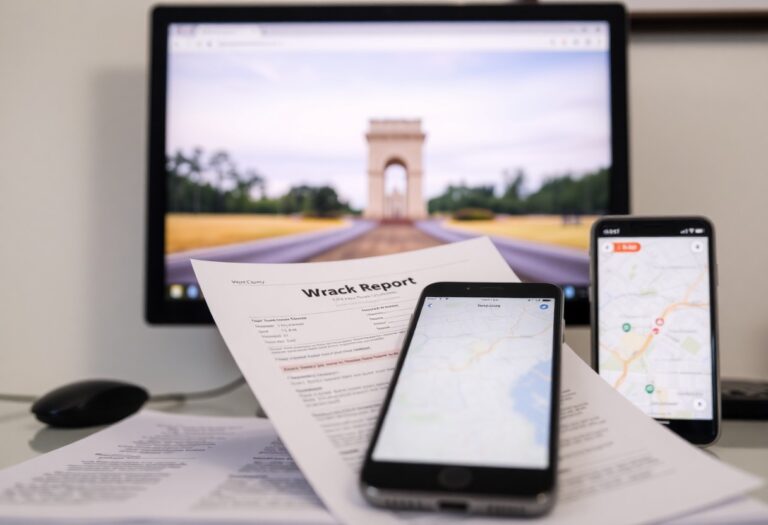You may find yourself in a challenging situation after a car accident in Terrebonne Parish, Louisiana. In such moments, having friendly and efficient assistance for your accident report can make a significant difference. This blog post will guide you through the process of obtaining your car accident report, including who to contact and what information you’ll need. With the right resources at your disposal, you can navigate this process with greater ease and confidence, ensuring your rights are protected and your needs are met.
Navigating the Aftermath: Essential Steps to Take
After a car accident, following a systematic approach can significantly ease your recovery process. Prioritize your safety and well-being while actively engaging with authorities and legal channels. Gathering relevant information, such as witness details and accident specifics, will be vital for any insurance or legal claims you may pursue later. Each step taken promptly can aid in protecting your rights and facilitating a smoother resolution.
Immediate Actions Following an Accident
Your first action should involve ensuring your safety. If you or anyone else is injured, call 911 for emergency assistance immediately. Once it is safe, move your vehicle to a secure location if possible. Document the accident scene by taking pictures, noting the time, location, and weather conditions. Engaging with witnesses and exchanging contact details with other involved parties can provide valuable evidence later.
Understanding the Importance of Reporting
Filing a police report after an accident is vital in establishing an official account of the incident. This report becomes a necessary document for both insurance claims and potential legal actions. Most states, including Louisiana, mandate that you report accidents involving injuries or significant property damage. Without this documentation, your claims may face challenges, making timely reporting important for your protection and accountability.
A police report not only confirms your version of events but also serves as a tangible record that can assist in resolving disputes or claims that may arise later. Local law enforcement can objectively document the scene, including details that you might overlook. In Terrebonne Parish, the quick filing of this report can provide law enforcement with the necessary insight to investigate and allocate fault appropriately, ensuring that your rights are safeguarded throughout the claims process.
Crafting Your Report: What to Include for Clarity
Creating a clear and concise accident report is necessary for effective communication with law enforcement and insurance companies. Include your full name, contact information, and driver’s license details at the top of the report. Document the date, time, and location of the accident, noting the weather and road conditions. Provide a detailed account of the events leading up to the crash, including your actions, the actions of the other driver(s), and any witnesses’ contact information. Clearly state any injuries sustained and damage to vehicles involved for a comprehensive understanding of the situation.
Key Details That Make Your Report Effective
Incorporating specific facts and figures enhances the effectiveness of your report. You should list the make, model, and license plate numbers of all vehicles involved, as well as the names and insurance details of other drivers. Including sketches or diagrams can visually represent the accident scene, which aids in clarifying the circumstances. Providing officer names and badge numbers from any responding authorities adds credibility to your account. Such clarity ensures that all parties have a complete picture of the incident.
Common Mistakes to Avoid in Your Written Account
Avoiding certain pitfalls is vital for your accident report’s integrity. Be cautious about making assumptions or including unfounded opinions, which can undermine your credibility. Ensure that you are precise with dates, times, and descriptions, as inaccuracies can create confusion. Do not forget to include all relevant details, including injuries or damages, which can significantly impact claims processing. Finally, steering clear of vague language enhances the report’s overall clarity and utility for all involved.
Sometimes, writing under stress can lead to misstatements or omitting necessary information in your account. For instance, you may hastily describe the accident, leaving out critical details such as other drivers’ behavior or traffic signals at the time. Taking a moment to think through your narrative can prevent misconceptions. If needed, consult with a legal expert in Terrebonne Parish to review your account before submitting it. This ensures accuracy and thoroughness while bolstering your case if disputes arise later.
Local Resources: Where to Seek Help
After a car accident, tapping into local resources can make a significant difference in your recovery process and case management. Terrebonne Parish boasts a range of support systems, including legal services, community organizations, and social services designed to assist residents in navigating the complexities of post-accident challenges. Local law firms offer personalized attention, while community support services provide emotional and practical assistance tailored to your specific needs.
Finding Legal Assistance in Terrebonne Parish
Consulting with a qualified attorney is necessary after a car accident. In Terrebonne Parish, you’ll find numerous legal professionals specializing in personal injury and accident claims. For example, firms like Law Office of Joseph H. Paryzek and Hugh B. Jones, LLC bring extensive knowledge and experience in handling various auto-related cases. They can guide you through the complexities of personal injury laws in Louisiana and help ensure that you receive fair compensation for your injuries or damages.
Utilizing Community Support Services
Community support services play a vital role in post-accident recovery by providing both emotional and practical assistance. Organizations such as the T Terrebonne Council on Aging and United Way of Southeast Louisiana offer various programs designed to aid individuals and families facing challenges after motor vehicle accidents. These services can include counseling, transportation aid, and help with accessing medical care, ensuring you have the support necessary to get back on your feet swiftly.
In addition to the aforementioned organizations, local hospitals and clinics often have social workers available who specialize in helping accident victims. They can connect you to resources such as rehabilitation services, financial counseling, and support groups. By engaging with these community resources, you not only find assistance tailored to your needs but also foster connections with individuals who understand your situation, creating a support network that can be invaluable during your recovery journey.
The Role of Insurance: What You Need to Know
Understanding your insurance policy can make a significant difference in how you navigate the aftermath of a car accident. Insurance is designed to offer financial protection from the costs associated with damages or injuries that result from an accident. Each policy varies, covering specific aspects such as medical expenses, vehicle repairs, or liability. Being familiar with the details and limits of your policy is vital, as it influences your claims and the support you receive in stressful situations.
How Insurance Companies Handle Accident Reports
Insurance companies utilize accident reports as a foundational element to evaluate claims. They analyze the details within the report, including witness statements, photos, and police notes to determine liability. Their proprietary algorithms also assess similar past claims to expedite resolution, ensuring you understand how coverage applies and what compensation you can expect based on the situation surrounding your accident.
Tips for Efficient Claims Processing
Streamlining the claims process can save you significant time and stress after an accident. Ensure you keep a comprehensive file of all documents related to the accident, including the accident report, photographs, and medical bills. Following up regularly with your insurance representative is beneficial, as it keeps your claim on their radar. Providing clear and concise information will help avoid delays. Thou must be proactive in monitoring your claim’s progress to ensure a smoother resolution.
- Maintain a detailed accident report file
- Follow up consistently with your insurance representative
- Be clear and precise with your information
- Understand your policy coverage and limits
- Communicate any updates related to your health and vehicle status
In addition to keeping organized records, being clear about your expectations can further aid in efficient claims processing. You may want to outline specific concerns or anticipated expenses upfront to prepare your insurer for the discussions that follow. Engaging actively in your claim enhances accountability on their part, ensuring your situation is addressed quickly and without unnecessary complications. Thou can significantly facilitate momentum and a smoother path toward resolution.
- Outline your concerns and expectations clearly
- Engage actively with the claims adjuster
- Request regular updates on your claim status
- Provide any additional documentation promptly
- Utilize online resources for claims tracking
The Emotional Impact: Managing Stress After a Collision
Experiencing a car accident can leave lasting emotional scars that far exceed physical injuries. The stress and anxiety that accompany such an event can disrupt every aspect of your life, from work to personal relationships. Acknowledging these feelings is the first step towards managing them effectively. Given the intense nature of car collisions, it’s common for individuals to feel overwhelmed. Seeking healthy coping mechanisms, such as talking to friends, engaging in physical activity, or pursuing therapy, will play a vital role in your recovery.
Recognizing the Psychological Effects of an Accident
After an accident, you might encounter a range of psychological effects, including post-traumatic stress disorder (PTSD), anxiety, or depression. Being aware of these symptoms—such as persistent flashbacks, emotional numbness, and difficulty concentrating—can help you address your state of mind early on. The backdrop of fear, uncertainty, or even guilt following a collision can exacerbate feelings of isolation, making it all the more important to acknowledge how profoundly a car crash can impact you emotionally.
Resources for Mental Health Support
Accessing mental health resources can significantly aid your recovery after a car accident. Local organizations, hotlines, and counseling services provide valuable support, whether you’re seeking professional help or simply want to talk with someone who understands your situation. Support groups specifically for car accident survivors are available in Terrebonne Parish and can foster a sense of community as you navigate your emotions. Connecting with trained professionals ensures you have the tools to manage the stress associated with a collision effectively.
In Terrebonne Parish, numerous resources exist for mental health support tailored to car accident survivors. Local nonprofits like the Louisiana Mental Health Association offer counseling options and can direct you to specialized therapists. Additionally, the National Highway Traffic Safety Administration (NHTSA) provides resources for victims of crashes, while community centers may offer workshops on mental well-being post-accident. Involving yourself in these programs can not only ease your burden but also empower you to rebuild your emotional well-being in the aftermath of an accident.
Conclusion
To wrap up, if you find yourself involved in a car accident in Terrebonne Parish, Louisiana, accessing friendly and efficient accident report assistance can make a significant difference in your recovery process. By understanding your rights and the steps to take immediately following an accident, you can navigate the complexities of the situation with greater ease. Make sure to utilize local resources and support systems available to you, ensuring that you receive the help you need during this challenging time.







